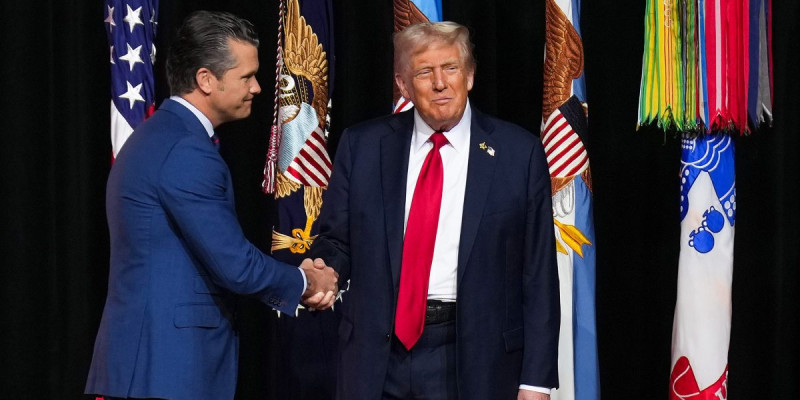In a hastily assembled gathering at Quantico, Virginia, Defense Secretary Pete Hegseth delivered a stark address to hundreds of top generals and admirals on Tuesday, outlining a radical overhaul of the U.S. military. Hegseth, a former Fox News host with a background in the Army National Guard—including deployments to Iraq and Afghanistan—didn't mince words. He declared the end of the "era of the Department of Defense," rebranding it the Department of War to refocus on unrelenting combat readiness. "Preparing for war and preparing to win," he emphasized, slamming what he called decades of decay from diversity initiatives and lax standards.
Indeed, Hegseth's speech zeroed in on physical fitness and grooming protocols, insisting on "the highest male standard" for combat roles. He even took aim at overweight officers, calling it "completely unacceptable to see fat generals and admirals" leading commands. Moreover, he warned commanders who disagree with the new directives—covering everything from anti-DEI policies to stricter enlistment rules—to simply resign. The message was clear: fall in line or step aside. This came just days after President Trump confirmed his attendance, turning the event into something of a partisan rally for military brass sworn to the Constitution.
Trump, seizing the moment, amplified the tension by proposing American cities as training grounds for troops to combat what he termed an "invasion from within" and a "war from within." His remarks defended deploying the military domestically against perceived internal enemies, a notion that has alarmed observers. National security expert Tom Nichols, a vocal critic of such rhetoric, quickly labeled the entire affair a dangerous politicization of the armed forces, arguing it undermines decades of apolitical tradition. Hegseth's own military service, while real, has been scrutinized for its limited combat experience compared to the generals he now lectures.
However, the rapid summoning of officers from around the globe—costing millions and disrupting operations—drew internal pushback, with some calling it more akin to a campaign stop than a strategic briefing. As these changes ripple through the Pentagon, questions linger about their impact on recruitment and global posture.
One can't help but wonder if this aggressive pivot will strengthen America's defenses or fracture them from the inside.

